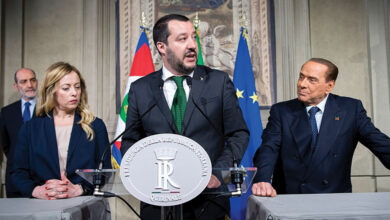SME Brexit preparation


Neil McDonnell, Chief Executive of the Irish Small and Medium Enterprise Association (ISME) advises businesses to prepare for the worst, hope for the best, and only then think about a soft Brexit.
A thought-experiment, if you’ll indulge me. Imagine that in June 2016 Ireland, by a 4 per cent majority, voted to leave the EU. Imagine our stated goal on the 1916 centenary was to rid ourselves of an oppressive external overlord, to free ourselves of the ECJ, the customs union, the EU Parliament and Commission, our €1.5 billion annual payment to the EU, and to free ourselves of the ‘four freedoms.’ Imagine also that we said we could achieve all this while remaining in the common market, with no tariffs, a frictionless border, and the ability to quickly conclude trade deals with third countries at will.
Imagine we told our erstwhile EU colleagues not merely that all would be well; but that achievement of the above was as much a responsibility of theirs as it was ours. When you have succeeded in imaging all that, stretch your imagination a little further, and consider how UK politicians would regard our position.
This is no criticism of the UK’s decision to leave the EU. While the UK is not a constitutional democracy in the modern sense, and while parliament rather than the people is legally sovereign, it is in many ways courageous that the British have decided to strike out on their own. The decision to honour the mandate is genuinely republican.
What is less than admirable (put very charitably) is that the UK government proffered a binary, in-out referendum to the people, without any policy position, and without any contingency plan for a ‘Leave’ vote.
It is not unreasonable to expect a fast, business-like, informed, and civil engagement by the UK with the Article 50 process, most particularly from those who articulated a Brexit policy long before David Cameron announced the date of the Brexit referendum on 20 February, 2016.
ISME members are predominantly a Eurosceptic bunch. Most small businesses are. They’re sceptical in the philosophical rather than the colloquial sense of that word: they are challenging, critical and cautious in their attitudes to the EU project. Where they are doubtful, they test that doubt. They dislike red tape and excessive regulation. But better the devil they know than an invitation to the unknown. Their Euroscepticism should not be confused with Europhobia. They would entertain the notion of an ‘Irexit,’ if, but only if, presented with a valid, credible alternative.
Which leads to the key issue ISME identifies with the pro-Brexit lobby in the UK. It is unconcerned with the technocratic detail which (unfortunately) is now required. There is no policy on the simplest, most binary issues such as UK membership of the customs union. Similarly, to the climate change debate in the US, Brexit has become an auto da fé among key cohorts of the Conservative, Labour and DUP parties; virtue-signalling to their internal audiences their commitment to a hard theological position.
That is an approach fundamentally at odds with the Article 50 process. Invoking Article 50 is not the same as negotiating an international trade deal, which grinds on until a mutually agreed solution. It is a strictly time-bound process, after which the departing member state is reliant on the good-will of others. We are already four months through that 24-month process.
Thankfully, there are signs that reality is sinking in, in London. Downing Street has apparently prepared up to 10 position papers on key policies. There are suggestions of a light-touch customs regime, and bespoke UK-Ireland travel arrangements. There is acknowledgment of the need for a transition period post-Brexit in March 2019. Some Tories at least countenance the payment of a Brexit bill, despite this being merely the pimple on the elephant’s backside of the Brexit process.
Our advice to SMEs remains the same: analyse your supply chain in detail, at least two suppliers up, and two customers down, to understand your business’s exposure. Use the Enterprise Ireland Brexit Scorecard tool. Develop a contingency plan for a worst-case hard Brexit, governed by WTO rules. Prepare for the worst, hope for the best, and only then can you think about a soft Brexit.





